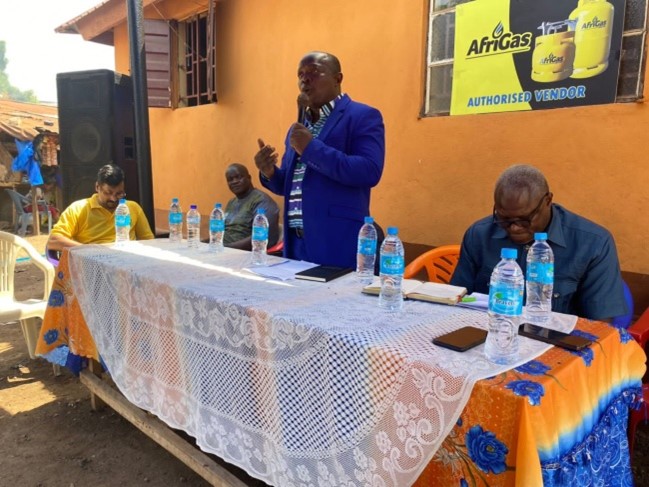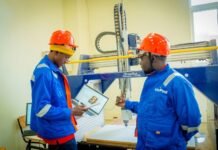By Millicent Senava Mannah
In a significant step towards sustainable development and improved livelihoods, the Sierra Leone Urban Research Centre (SLURC) and Platforms for Energy Security, Innovation and Access (PESIA) have inaugurated a pioneering Community Kitchen Project in the Portee-Rokupa community.
This landmark event, which occurred on April 25th, 2024, marks a crucial milestone in the “Beyond the Networked City” initiative aimed at revolutionizing water, sanitation and energy delivery in urban Africa.
The Community Kitchen comprises various cooking technologies, including Afrigas, LPG Cylinders, local cook stoves, firewood, charcoal, electric coil cookers and specialized ovens for fish, a vital consideration given the community’s predominant engagement in fishing activities. The unveiling ceremony witnessed the participation of stakeholders from diverse backgrounds, including NGOs, INGOs, Governmental institutions and community representatives.
Funded by the UK Global Challenges Research Fund (GCRF) and spearheaded by the Universities of Bristol, Loughborough, Makerere and the African Centre for Cities, the Beyond Networked City research project spans three years.
According to Joseph Marcarthy, the Executive Director of SLURC, ensuring access to clean and affordable energy is indispensable for societal well-being and sustainable development.
He emphasized the pivotal role of community kitchens in preparing meals for schools, hospitals and communal settings. However, traditional cooking methods prevalent in many kitchens not only contribute to deforestation but also pose severe health risks due to indoor air pollution.
Joseph Marcarthy underscored the urgent need for innovative and sustainable solutions to transform these kitchens into safe, efficient and environmentally friendly spaces.
Speaking on the community’s behalf, the Executive Director highlighted the challenges faced by residents, including limited access to essential cooking utensils and technologies. The provision of cooking stoves, particularly electric and LPG variants is expected to significantly enhance their quality of life and reduce health hazards associated with pollution and fire accidents, he underscored.
Gopi Krishnamothy, the Commercial Marketing Manager at PESIA, expressed enthusiasm for the project, describing it as a pioneering effort in Sierra Leone’s green cooking landscape. The Community Kitchen offers a unique opportunity for residents to experience and choose from various cooking technologies, ranging from charcoal to electricity, empowering them to make informed decisions based on their preferences and needs.
Kumba Conteh, the Research and Development Head at EGTC expressed delight in contributing to such a transformative endeavour in a deprived community. She pledged continued collaboration with SLURC to extend similar developments to other communities in need.
Mohamed Kamara, representing the Renewable Energy Sector at the Government Technical Institute, commended the successful implementation of the project and urged community members to uphold the facility’s sustainability through responsible usage.
The initiative received accolades from representatives of various organizations, including AVSI and BRAC, acknowledging its commendable impact on community development and well-being.
The event concluded with the official opening of the Community Kitchen by a representative of the Executive Director of the Environmental Protection Agency, symbolizing a step towards a greener, healthier future for Portee-Wharf and beyond.






